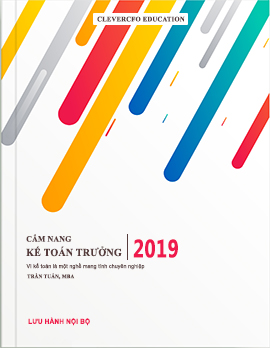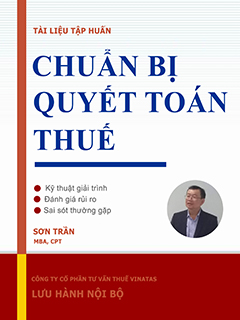Accounting Dictionary – 38 - GLO
GAAP see GENERALLY ACCEPTED ACCOUNTING PRINCIPLES.
G&A usually refers to the indirect overhead costs contained within the General and Administrative expense / cost categories (see also SG&A).
GAI is Guaranteed Annual Income.
GAO see GENERAL ACCOUNTING OFFICE.
GARBAGE IN, GARBAGE OUT (GIGO) is an often used computer and software industry saying meaning that if the data going into a system is suspect, the resulting data output will be suspect.
GASB stands for Government Accounting Standards Board.The GASB is a nonprofit organization responsible for establishing and improving accounting and financial reporting standards for governmental units.
GATT (GENERAL AGREEMENT ON TARIFFS AND TRADE) is a multilateral treaty that aims to reduce trade barriers and increase trade. The GATT was an interim treaty process that has now culminated in the World Trade Organization (WTO).
GBP is United Kingdom Pound Sterling (Currency Code).
GDP see GROSS DOMESTIC PRODUCT.
GEARING is the proportion of the capital employed of a company that is financed by lenders rather than shareholders.
GEARING RATIO measures the percentage of capital employed that is financed by debt and long term financing. The higher the gearing, the higher the dependence on borrowing and long term financing. Whereas, the lower the gearing ratio, the higher the dependence on equity financing. Traditionally, the higher the level of gearing, the higher the level of financial risk due to the increased volatility of profits. Financial manager face a difficult dilemma. Most businesses require long term debt in order to finance growth, as equity financing is rarely sufficient, on the other hand, the introduction of debt and gearing increases financial risk. A high gearing ratio is positive; a large amount of debt will give higher return on capital employed but the company dependent on equity financing alone is unable to sustain growth. Gearing can be quite high for small businesses trying to become established, but in general they should not be higher than 50%. Shareholders benefit from gearing to the extent that return on the borrowed money exceeds the interest cost so that the market value of their shares rise.
GENERAL ACCOUNTING involves the basic principles, concepts and accounting practice, recording, financial statement preparation, and the use of accounting information in management.
GENERAL ACCOUNTING OFFICE (GAO) is the organization in the U.S. Congress that investigates the performance of the federal government. GAO evaluates the use of public funds and the performance of federal programs, while also providing analytical, investigative and legal services in order to support to Congress in its policy formulation and decision making processes. Most GAO reports are initiated at the request of Congress, while some are initiated by the agency itself or are required by law.
GENERAL EXPENSE is expense not directly connected with any single department.
GENERAL JOURNAL is the most basic of journals. It is a chronological list of transactions. It has a very specific format for recording each transaction. Each transaction is recorded separately and consists of: 1.) a date; 2.) any and all accounts to receive a debit entry are listed first with an amount in the appropriate column, then; 3.) any and all accounts to receive a credit entry are indented and listed next with an amount in the appropriate column; 4.) a clear description of the transaction. At least one line is then skipped to visually separate recorded transactions.
GENERAL LEDGER is the record of all account entries.
GENERALLY ACCEPTED ACCOUNTING PRINCIPLES (GAAP) is a recognized common set of accounting principles, standards, and procedures. GAAP is a combination of accepted methods of doing accounting and policy board set authoritative standards.
GENERALLY ACCEPTED AUDITING STANDARDS (GAAS), in the US, are the broad rules and guidelines set down by the Auditing Standards Board of the American Institute of Certified Public Accountants (AICPA). In carrying out work for a client, a certified public accountant would apply the generally accepted accounting principles (GAAP); if they fail to do so, they can be held to be in violation of the AICPA's code of professional ethics.
GENERAL LEDGER is the accounting records that show all the financial statement accounts of a business.
GENERAL PARTNERSHIP is one or more partners who are jointly and severally responsible or liable for the debts of the partnership.
GEOGRAPHICAL SEGMENT is a component of an enterprise that (a) provides products and services within a particular economic environment and (b) that is subject to risks and returns that are different from those of components operating in other economic environments.
GFOA is Government Finance Officers' Association.
GILT is a bond issued by the UK government. Gilts are equivalent to a U.S. Treasury security.
GLOBAL CUSTODY is a term used within the investment banking industry in defining securities/monetary instruments that are traded internationally by Global Custodians. Those securities would be held in "Global Custody". Chase Bank originated the concept of providing Global Custody trading services for institutional investors trading in foreign markets in 1974. Banks recognized as Global Custodians provide their customers with Global Custody services in respect to securities traded and settled not only in the country in which the Global Custodian is located but also in numerous other countries throughout the world.
GAAP see GENERALLY ACCEPTED ACCOUNTING PRINCIPLES.
G&A usually refers to the indirect overhead costs contained within the General and Administrative expense / cost categories (see also SG&A).
GAI is Guaranteed Annual Income.
GAO see GENERAL ACCOUNTING OFFICE.
GARBAGE IN, GARBAGE OUT (GIGO) is an often used computer and software industry saying meaning that if the data going into a system is suspect, the resulting data output will be suspect.
GASB stands for Government Accounting Standards Board.The GASB is a nonprofit organization responsible for establishing and improving accounting and financial reporting standards for governmental units.
GATT (GENERAL AGREEMENT ON TARIFFS AND TRADE) is a multilateral treaty that aims to reduce trade barriers and increase trade. The GATT was an interim treaty process that has now culminated in the World Trade Organization (WTO).
GBP is United Kingdom Pound Sterling (Currency Code).
GDP see GROSS DOMESTIC PRODUCT.
GEARING is the proportion of the capital employed of a company that is financed by lenders rather than shareholders.
GEARING RATIO measures the percentage of capital employed that is financed by debt and long term financing. The higher the gearing, the higher the dependence on borrowing and long term financing. Whereas, the lower the gearing ratio, the higher the dependence on equity financing. Traditionally, the higher the level of gearing, the higher the level of financial risk due to the increased volatility of profits. Financial manager face a difficult dilemma. Most businesses require long term debt in order to finance growth, as equity financing is rarely sufficient, on the other hand, the introduction of debt and gearing increases financial risk. A high gearing ratio is positive; a large amount of debt will give higher return on capital employed but the company dependent on equity financing alone is unable to sustain growth. Gearing can be quite high for small businesses trying to become established, but in general they should not be higher than 50%. Shareholders benefit from gearing to the extent that return on the borrowed money exceeds the interest cost so that the market value of their shares rise.
GENERAL ACCOUNTING involves the basic principles, concepts and accounting practice, recording, financial statement preparation, and the use of accounting information in management.
GENERAL ACCOUNTING OFFICE (GAO) is the organization in the U.S. Congress that investigates the performance of the federal government. GAO evaluates the use of public funds and the performance of federal programs, while also providing analytical, investigative and legal services in order to support to Congress in its policy formulation and decision making processes. Most GAO reports are initiated at the request of Congress, while some are initiated by the agency itself or are required by law.
GENERAL EXPENSE is expense not directly connected with any single department.
GENERAL JOURNAL is the most basic of journals. It is a chronological list of transactions. It has a very specific format for recording each transaction. Each transaction is recorded separately and consists of: 1.) a date; 2.) any and all accounts to receive a debit entry are listed first with an amount in the appropriate column, then; 3.) any and all accounts to receive a credit entry are indented and listed next with an amount in the appropriate column; 4.) a clear description of the transaction. At least one line is then skipped to visually separate recorded transactions.
GENERAL LEDGER is the record of all account entries.
GENERALLY ACCEPTED ACCOUNTING PRINCIPLES (GAAP) is a recognized common set of accounting principles, standards, and procedures. GAAP is a combination of accepted methods of doing accounting and policy board set authoritative standards.
GENERALLY ACCEPTED AUDITING STANDARDS (GAAS), in the US, are the broad rules and guidelines set down by the Auditing Standards Board of the American Institute of Certified Public Accountants (AICPA). In carrying out work for a client, a certified public accountant would apply the generally accepted accounting principles (GAAP); if they fail to do so, they can be held to be in violation of the AICPA's code of professional ethics.
GENERAL LEDGER is the accounting records that show all the financial statement accounts of a business.
GENERAL PARTNERSHIP is one or more partners who are jointly and severally responsible or liable for the debts of the partnership.
GEOGRAPHICAL SEGMENT is a component of an enterprise that (a) provides products and services within a particular economic environment and (b) that is subject to risks and returns that are different from those of components operating in other economic environments.
GFOA is Government Finance Officers' Association.
GILT is a bond issued by the UK government. Gilts are equivalent to a U.S. Treasury security.
GLOBAL CUSTODY is a term used within the investment banking industry in defining securities/monetary instruments that are traded internationally by Global Custodians. Those securities would be held in "Global Custody". Chase Bank originated the concept of providing Global Custody trading services for institutional investors trading in foreign markets in 1974. Banks recognized as Global Custodians provide their customers with Global Custody services in respect to securities traded and settled not only in the country in which the Global Custodian is located but also in numerous other countries throughout the world.









